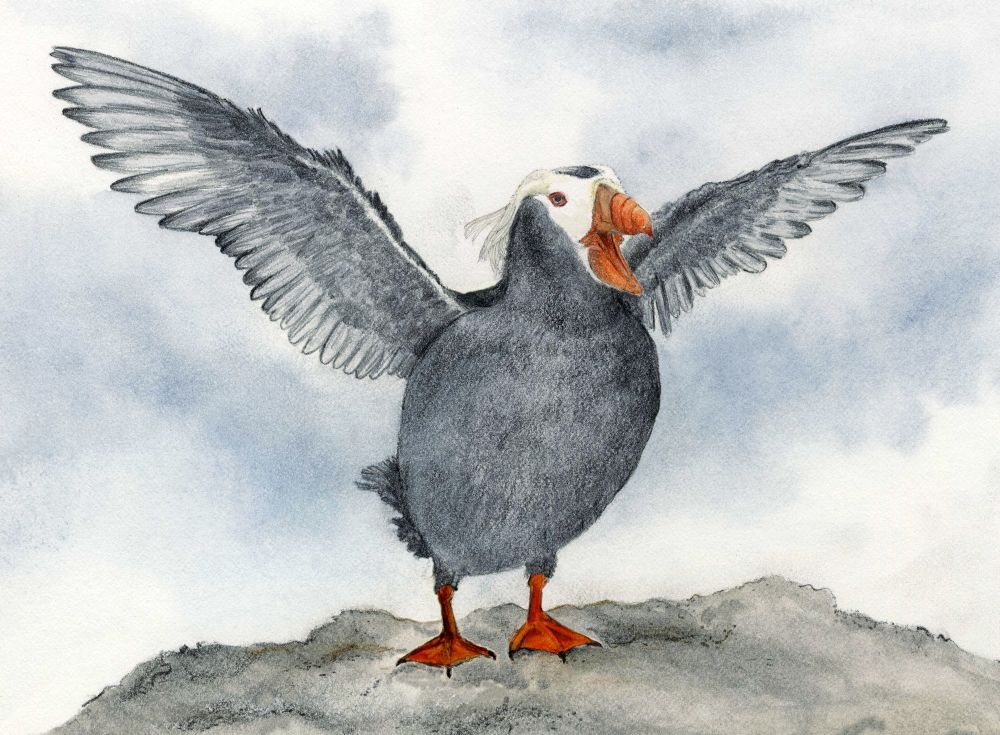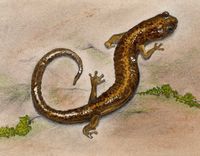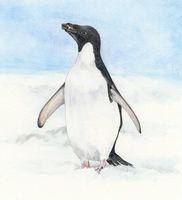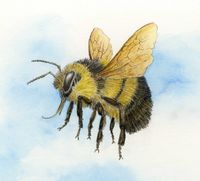
Tufted Puffin
Latin name: Fratercula Cirrhata,Conservsation status: vulnerable (population is decreasing)
Puffins dive as deep as 200 ft. for food, stay under water for more than a minute, and fly up to 40 mph.
Tufted Puffins are threatened by sea level rise and storm surges which destroy habitats and breeding areas. In some areas of North America warming seas are causing the fish that the Puffins feed on to migrate farther north, making it difficult for them to find adequate food. Other threats are entrapment in fishing nets, oil spills, pollution, ingestion of plastic, human disturbance of breeding colonies and introduced predators such as rats and foxes.
Other animals effected by climate change
 Shenandoah Salamander
Shenandoah SalamanderThe Shenandoah Salamander lives in an isolated, high altitude region of Shenandoah National Park, USA. Like all amphibians who have thin, permeable skin, salamanders are very sensitive to environmental changes. If average temperatures or moisture increase, this salamander, restricted to its cool micro-climate, will be at risk—having no place to go but to lower, even warmer, altitudes. If warming causes other species of lower altitude salamanders to migrate higher, they will compete for the Shenandoah's cool, moist habitats.
 Adelie Penguin
Adelie PenguinIn winter, the sun doesn't rise south of the Antarctic Circle. If Antarctic sea ice decreases and does not extend far enough to the north, Adélie Penguins, during their winter migration, may not be able to reach the sunlight needed to navigate, hunt and avoid predators—they won't dive in the dark. Other threats are oil pollution, fishing and disturbance of colonies from research stations and aircraft.
 Rusty Patched Bumble Bee
Rusty Patched Bumble BeeThe Rusty Patched is the first bee to be listed as endangered in the US. Populations have declined as much as 87% from habitat loss, disease and pesticides. Climate threats include: warming and precipitation, early snow, late frost and drought. Bees and butterflies are important agricultural pollinators. In 2016, 40% of invertebrate pollinators (bees and butterflies) were listed as threatened with extinction.
 Monarch Butterfly
Monarch ButterflyThe annual North American migration of the Monarch is listed as a "threatened phenomenon." Climate related threats include: drought, storms, changes in precipitation and dependence on temperature to trigger migration and reproduction. The Monarch feeds and lays eggs exclusively on milkweed plants, so it is also highly vulnerable to herbicides and habitat destruction.
